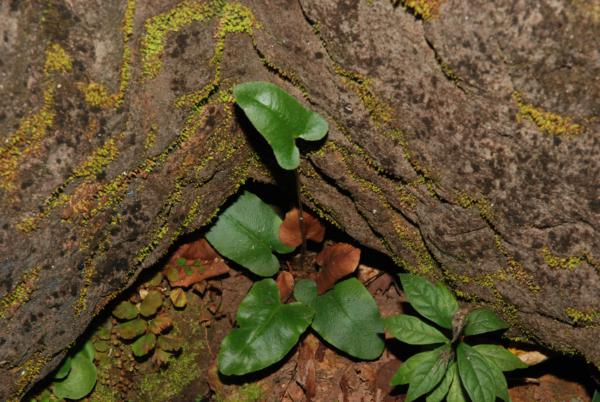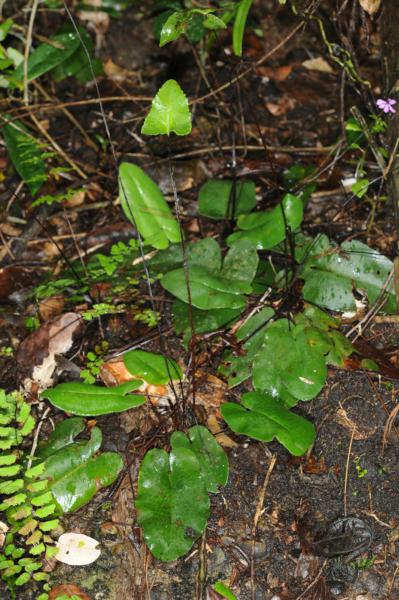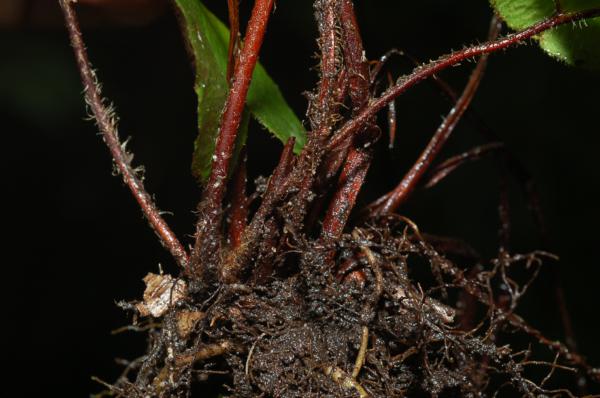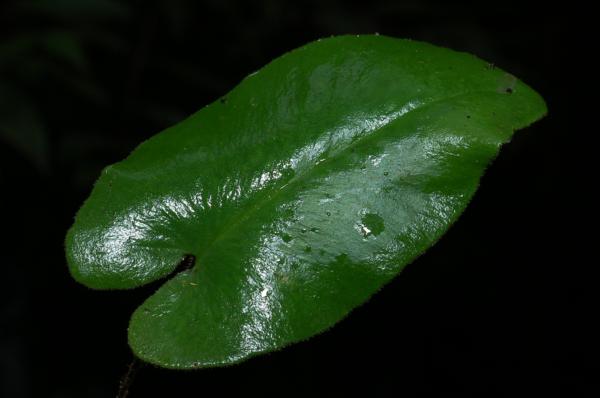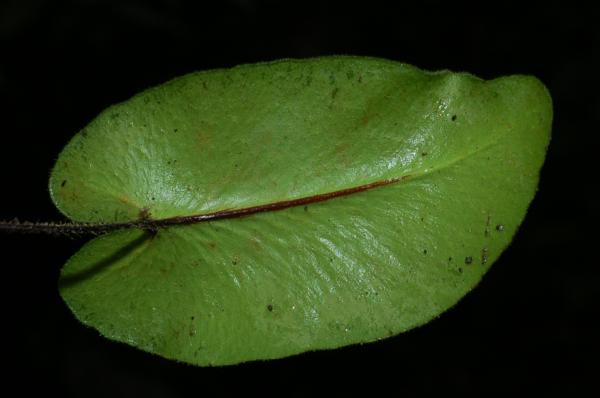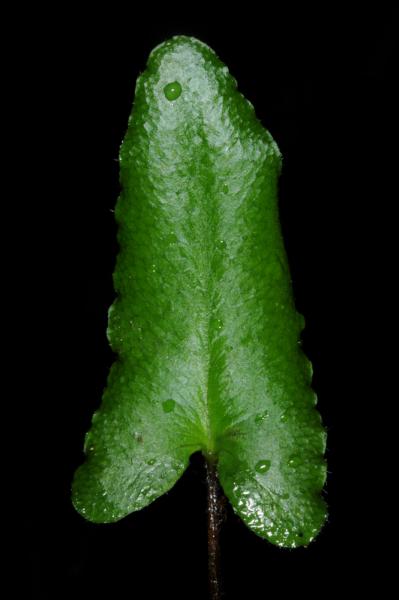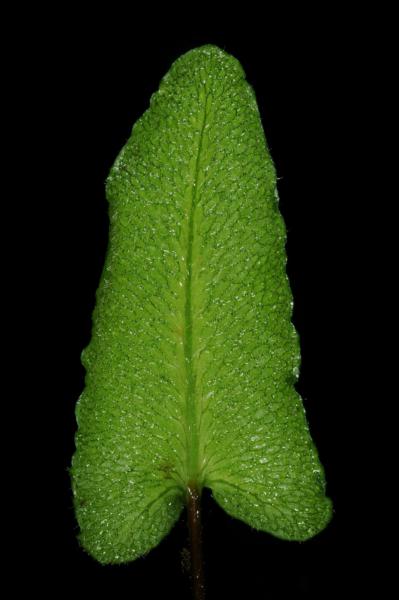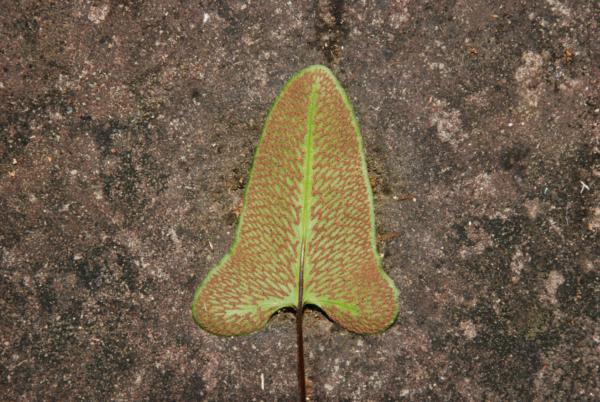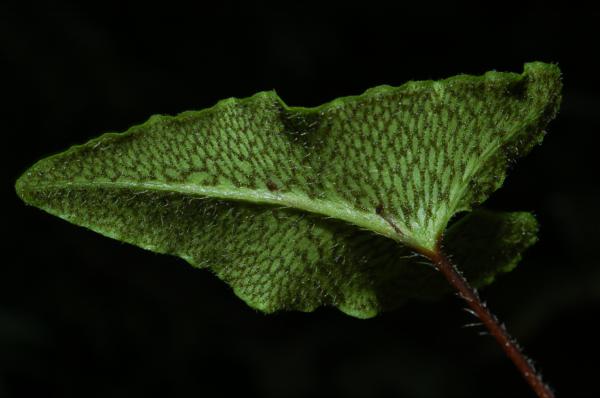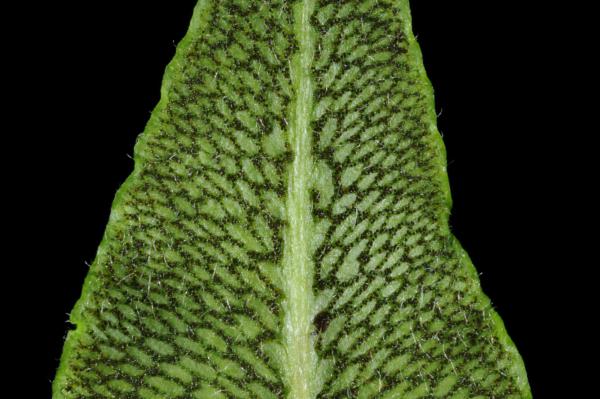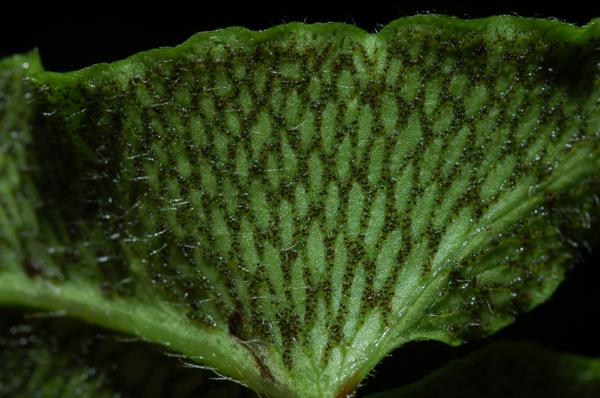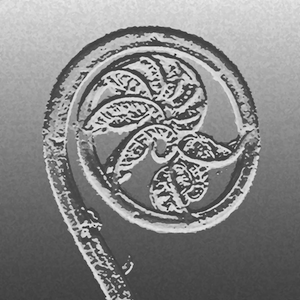
Parahemionitis cordata (Roxb. ex Hook. & Grev.) Fraser-Jenk.
Family
Pteridaceae, subfamily Cheilanthoideae
Nomenclature
Parahemionitis cordata (Roxb. ex Hook. & Grev.) Fraser-Jenk., New Sp. Syndr. Indian Pteridol. 187. 1997. – Hemionitis cordata Roxb. ex Hook. & Grev., Icon. Filic.: t. 64. 1828.
Hemionitis arifolia (Burm.f.) T.Moore, Index Filic.: 114. 1859; Bedd., Handb. Ferns Brit. India: 413, f. 245. 1883; Tardieu & C.Chr., Fl. Indo-Chine 7(2): 189. 1940; Holttum, Rev. Fl. Malaya ed. 1, 2: 596. 1955 [‘1954’]; Tagawa & K.Iwats., Acta Phytotax. Geobot. 25: 19. 1971; Tagawa & K.Iwats., Fl. Thailand 3: 191. 1985; Boonkerd & Pollawatn, Pterid. Thailand: 101, 123. 2000; Newman et al., Checkl. Vasc. Pl. Lao PDR: 31. 2007. – Asplenium arifolium Burm.f., Fl. Indica: 231. 1768.
Description
Rhizome short, suberect, covered with scales; scales narrow, concolorous, brown, 2–3 mm long, entire. Stipes deep castaneous to nearly black, grooved on adaxial surface, up to 20 cm long in fertile and up to 8 cm in sterile fronds, scaly or hairy throughout, hairs multicellular, coarse, up to 1.5 mm long. Laminae distinctly dimorphic; sterile lamina simple, narrowly ovate or oblong, round at apex, deeply cordate at base, entire, up to 7 by 4 cm; thickly papyraceous to chartaceous, bearing scales and hairs on lower surface, densely hairy at margin with short multicellular hairs; costa raised on lower surface, the veins reticulate without free veinlets, obscure; fertile lobes oblong-subdeltoid, up to 5 by 3 cm, moderately acute at apex, cordate at base, the two basal lobes triangular, moderately acute, entire; thinner than the sterile. Sporangia placed along veins, forming a network all over the lower surface, without any protection but scales mixed with sporangia .
Distribution in Thailand
NORTHERN: Chiang Mai, Phitsanulok; NORTH-EASTERN: Khon Kaen; EASTERN: Ubon Ratchathani, SOUTH-EASTERN: Chon Buri; PENINSULAR: Surat Thani, Krabi, Nakhon Si Thammarat, Phatthalung.
Distribution in Laos
Attopeau, Champasak.
Distribution in Cambodia
Kampot, Kompong Cham, Kompong Chhnang, Pursat, Siem Riep.
Wider Distribution
Sri Lanka, S & NE. India, S China, Indochina, W Malesia to the Philippines.
Ecology
On muddy rocks or terrestrial by paths in dense forests at low to medium altitudes below 600 m throughout the country but rather rare.
Proposed IUCN Conservation Assessment
Least Concern (LC). This species is widespread and not under any known threat.
Voucher specimens - Thailand
Middleton et al. 5184, Ubon Ratchathani, Phu Chong Nayoi National Park (E); Larsen et al. 31241, Krabi, Ao Luk (P); Maxwell 86-756, Phatthalung, Tamote Falls Reserve (P).
Voucher specimens - Laos
Poilane 15969, Attopeu, between Phu Da Phuk & Mong Mai (P).
Voucher specimens - Cambodia
Poilane 15058, Pursat, between Kom Nom and Trassay (P); Long et al CL228, Siem Reap (P).
Habit
Habit
Rhizome and stipes
Upper surface of sterile pinna
Lower surface of sterile pinna
Upper surface of fertile pinna
Lower surface of fertile pinna with immature sori
Lower surface of fertile pinna with mature sori
Lower surface of fertile pinna
Sori
Sori
Site hosted by the Royal Botanic Garden Edinburgh. Content managed by Stuart Lindsay, Gardens by the Bay, Singapore and David Middleton, Singapore Botanic Gardens. Last updated 24 January 2012
